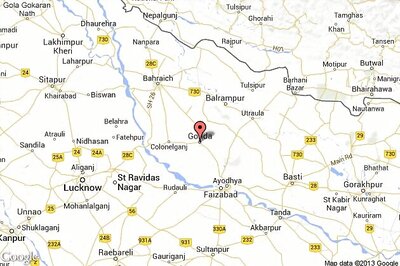
views
Jet Airways is gasping for breath as just about 35 aircraft, or a third of its total fleet, are flying as of today. A senior government official on Wednesday evening said that more of Jet’s aircraft may be grounded in the coming days as the airline continues to struggle to pay lease rentals to aircraft lessors.
Another official said airport slots for Jet would be offered to other airlines across India “temporarily”. With more than two-thirds of the aircraft on ground, Jet has cancelled hundreds of daily flights across Indian airports and prized landing slots have fallen vacant.
Will Jet Survive?
The ministry official quoted earlier said that Jet was not being “considered” for the summer schedule, which begins from March 28. The absence of Jet from India’s summer schedule for airlines — likely the first time since the airline was born — surely signals a new low in the rapidly worsening status of Jet which was, till January, the second largest by passengers in the domestic market.
Even last month, the airline flew almost 13 lakh passengers and commanded 11.4% share of the domestic market. Whether Jet will survive beyond the next few days now depends entirely on the consortium of state-owned banks, led by the State Bank of India, which is trying to hammer out a solution to this seemingly insurmountable mess.
As per an earlier resolution plan, lenders led by the SBI have already agreed to convert their loans into equity for a princely sum of Re 1. And government-backed National Infrastructure Investment Fund (NIIF) is also readying to invest in the beleaguered airline. Now, as existing equity partner Etihad Airways has declined to play ball and reportedly expressed its intention to exit Jet, the Indian bank lenders may have to shell out more money, over and above the initial haircut to keep Jet alive.
The airline owes well over Rs 8,000 crore to various lenders. And media reports now suggest that the SBI may have agreed to buy out Etihad, which means it will sink in more money into Jet.
Other reports suggest that the lenders’ consortium is simultaneously pushing chairman Naresh Goyal to trim his stake so that more money can be raised and is also considering a change in the management of the airline. As is evident, the Jet ‘rescue brigade’ now largely involves PSU banks and the NIIF. It would not be incorrect to say then that the government is actively involved in saving a private airline from near certain demise by investing taxpayer money without the consent of the taxpayers.
And at least one opposition party, the Congress, has begun to cry foul, alleging misuse of public money to save a private business from collapse.
"Why is the Modi government giving a ‘bailout package' to a bankrupt corporate entity like Jet Airways, owned by foreign investors, out of public money but not to India's debt-ridden farmers? Will the Modi government now save every defaulting crony capitalist out of public funds? Is this the new ‘Modi Model’ of siphoning off public funds," fumed Randeep Singh Surjewala. He said the government as well as banks were only custodians of public money and could take such a decision on their own.
Why is the Government Keen to Prop up Jet?
If Jet were to get grounded, it would be terrible optics coinciding with the Lok Sabha polls and the government cannot be seen as a mute spectator when thousands of jobs are at risk. So the government has activated several of its arms to rescue the airline, never mind charges of crony capitalism etc.
A question some experts have been asking is pertinent here: why is Jet not being referred to the Insolvency and Bankruptcy (IBC) process, which has seen some success in the last two years of its existence? Some high-profile cases have seen resolutions and lenders have got a reasonable return on their investments which may otherwise have gone bad. Wouldn’t it have been better for the lenders of Jet to also consider taking it through the IBC process?
People involved with several IBC cases say there are both pros and cons to this process. One person closely associated with the resolution of a steel major said the fear of job losses should actually now push the lenders towards, and not away, from IBC. He said Jet’s employees may stand a better chance of retaining their jobs and getting paid on time under IBC since
1) There will be a moratorium on aircraft lessors from grounding more aircraft and also on all other stakeholders from taking any coercive action against Jet. The airline will be saved from losing more aircraft, airport slots etc the moment the IBC process gets initiated.
2) As a second step, an independent professional will be appointed to run the airline, with support from the current management.
Besides, certain sections in the IBC process bar the promoters from coming up with a resolution plan so Naresh Goyal cannot hold any equity in the company if it is under IBC.
“Jet has now reached a stage where a formal insolvency process should be initiated in order to restore the fast eroding confidence of stakeholders, including the customers and the various suppliers and service providers, so that the rapidly depleting value of the enterprise can be preserved. Also, the formal insolvency order will trigger a moratorium thus restraining various parties from taking coercive steps. An independent insolvency professional would be able to stabilise the business and engage all the stakeholders to bring them to the table,” this insolvency expert said.
But another person involved in IBC cases said if lenders of Jet are convinced of better returns outside the IBC process, they would want to avoid IBC till the end.
As initial government inertia and a complicated bailout plan stitched together by lenders worsens Jet’s situation instead of improving matters, all eyes are on India’s state-owned banks to come up with crores to bail out yet another private business.
(The author is a senior journalist)
















Comments
0 comment